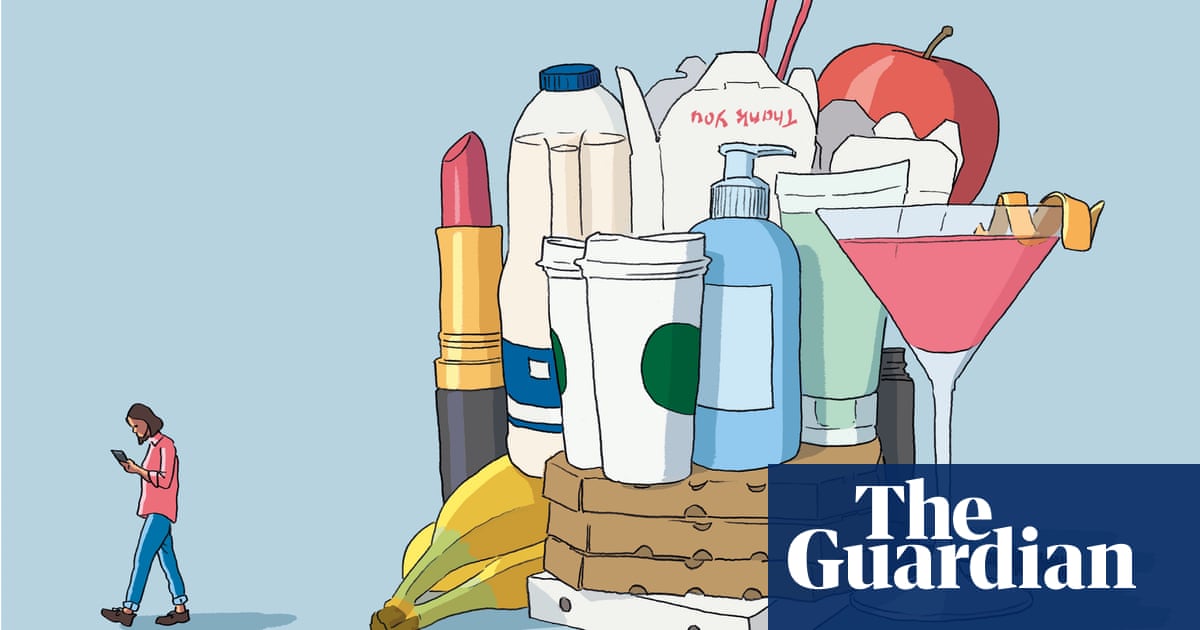
Iremember the first violent message I received on Instagram. It was a veritable bingo of hate: he mocked me, told me no one would want to look at my “dirty” crotch – though his language was worse, of course. He asked if “sluts” like me, moaning until they “get what they want”, was “what our country was coming to”, before reminding me that nothing was going to change. He finished by saying he hoped I was gang-raped “senseless” by 20 men. But, he didn’t use the word “men”. He used a racist slur instead, finishing the message with five middle-finger emojis. I remember how my chest tightened and I grew hot with fear.
That day had marked my first appearance on a big, mainstream television channel. I was three months into a campaign I’d launched to raise awareness about non-consensual upskirt photographs, something that I’d fallen victim to that summer at a music festival. While I waited patiently for a band to come on stage, a man had stuck his hands between my legs, up my skirt and taken photos of my crotch, sharing it with his friends around him. I heard laughter and sensed that they were looking at me. One of the guys was standing in front of me, head down, laughing at something on his phone. I looked around his back and saw he was on WhatsApp, looking at a picture of my crotch. I was standing in the middle of a crowd of tens of thousands, but somehow I managed to snatch the phone from his hands and run through the throngs of people to security.
The man with the phone had chased me, swiping at me to get the phone, but, with the help of security, I eventually managed to hand him and the phone over to police officers. The male officer told me that it was unlikely that I’d hear much from the police: since I was wearing knickers, he said, the image wouldn’t be considered graphic. I left the festival feeling dejected. After doing research, I found out that upskirting was not a sexual offence in England and Wales, but had been in Scotland for a decade. The next two years of my life comprised constant media interviews, building a political strategy, running a social media campaign, meeting with survivors and victims and collecting thousands of stories – eventually leading to the Voyeurism (Offences) Act 2019 coming into force.
I hadn’t been surprised to become the target of online hate. Misogynistic abuse online is everywhere. If you’re a woman, or someone who presents themselves in a feminine way, with a platform of any size, you have probably received it. If you’re critiquing rape culture and misogyny itself, as I was, you tend to upset exactly the type of people who would happily hit send on a message like that.
When abuse fills up your DMs and your inbox, there’s no way to escape it. I knew that if I logged out and deleted the apps it would still be sitting there waiting for me. I knew that I’d have to get used to receiving it: something I don’t believe is at all fair. Somehow, I felt more in control having read it, because surely if someone threatened me, I’d be safer and more prepared knowing what might be about to happen. In our culture we’re despondent – apathetic, even – about the scale of the problem, not just in Britain but across the globe; 46% of women and non-binary respondents to a 2020 survey reported experiencing online abuse. We know underage girls are being “cyber-flashed” by grown men on Snapchat. We know that the racist and misogynistic abuse pouring into black feminists’ inboxes is never ending. And yet, we treat this culture as an unintended consequence of the digital world, instead of a problem of our own making. Instead of something that we can dismantle.
Those in charge of tackling of this abuse are usually men. They don’t really understand the impact it has on victims and survivors. They haven’t been in our shoes. They haven’t lain in bed at night figuring out how they would escape if one of the men who hates them breaks in. They haven’t had to run home because their nervous system feels like it’s on fire and they’re convinced that the men they just saw leering and talking on the mobile are plotting their kidnap. They haven’t moved through a society rife with sexual violence, as a woman.
Online abuse didn’t come out of nowhere, it’s the new form of a historical problem: the controlling of women and marginalised genders through fear. The difference is that it now happens on devices with serial numbers, browsers with IP addresses and platforms with digital breadcrumb trails, so we do have the ability to track down and crack down. The issue is where our priorities lie.
So, while the lawmakers who don’t even run their own social media accounts, and CEOs like Mark Zuckerberg, refuse to make accountability a priority, those of us fighting for a fairer society will stay exhausted. No single bill from parliament will solve this, and no single software update will either. A holistic and collaborative effort from the platforms, lawmakers and independent initiatives who know the reality of the issue, not just the theory, would be a positive start.
Until then, we’ll share our locations with friends, add another dick pic to our screenshots folder and delete messages with trembling hands, hoping that one day our safety will finally become a priority.
Gina Martin is a campaigner and writer. She will be part of a Guardian Live panel event to discuss tackling the online abuse of women on Wednesday 9 February, 8pm GMT. Book tickets here












